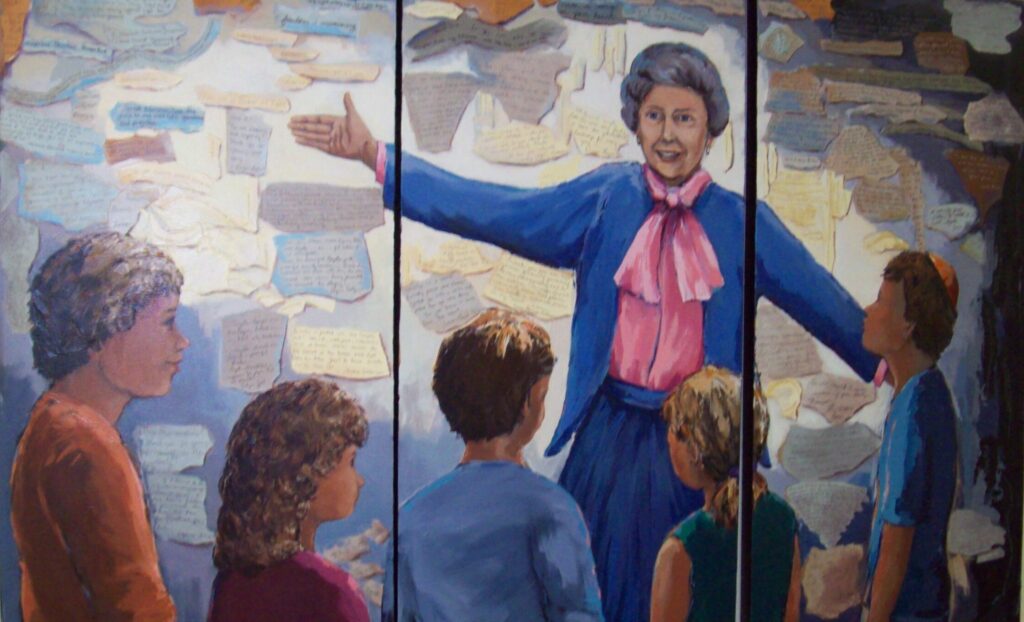Ann Gilbert’s poem “Dear Mother” is written from the viewpoint of Lena Gilbert, her daughter, writing to Mrs. Gilbert. While it does not explicitly mention tattoos, it does tackle the issue of the generational effects the children of the Holocaust experience.
In the articles Ms. Fishman uncovered through her research, Lena speaks highly of her mother. She states that her mother was an “amazing person” who showed her and her siblings “how to be independent, be great advocates for themselves, and achieve anything they wanted to achieve.” She also describes her mother as a “homemaker, cook, and talented seamstress.”
Lena and her siblings were intrigued by their parent’s experiences during the Holocaust and frequently asked them to tell their stories. Initially, her parents declined, as they did not want to share those terrible events with their children. However, when Lena entered high school and “as her history classes learned about the Holocaust, her parents became more comfortable sharing their story.”
Lena explains, “Before her mom passed away, her mother asked her if she would tell their story, and so she is.” It is true that “there are fewer and fewer members of their generation left to remind the world of the Holocaust’s horrors and lessons;” thus, that is why Lena feels it is critical to keep her parents’ stories alive. However, she notes that her words are not as powerful as her parents talking for themselves. Lena would agree with Primo Levi that there is no voice for those who die, and speaking on their behalf only gives a “story of things seen at close hand, not experienced personally” (pg. 83). She explains this when she says, “it was quite a bit more impressive for my father to sit with a group and roll up his sleeve and show that tattoo that stayed with him until the day he died.”
To her and her siblings, the tattoo was something they marveled at, both in fear and admiration. The tattoo was a main part of her parents’ stories and a major point in their lives as well. Lena and her siblings did not view the tattoo as shameful but as something to be used as a supplementary tool of education.
It is important to note that this poem serves as a comparison to the subsequent one for Mrs. Gilbert, as the latter is written from Mrs. Gilbert’s viewpoint to her children.
DEAR MOTHER
No other woman could compare
Her love, beauty, wisdom
Didn’t seem fair
She learned and she taught
A survivor always
To the end she fought
She never let her troubles
Show on her beautiful face
A homemaker and talented seamstress
Nothing was ever out of place
Though not always this easy
She lived through tough times
The Holocaust consumed her
Yet she ended up fine
Eager to hear her tales
But tell, she would not
Every day I grew older
More and more I sought
Then came a day
When she let it all slip
I savored the the words
Held them tight in a grip
Now I cannot
Give her story near as well
But it is my duty
To educate and to tell
I made her a promise
To pass on her legacy
As I recite the words
I know she is truly free
